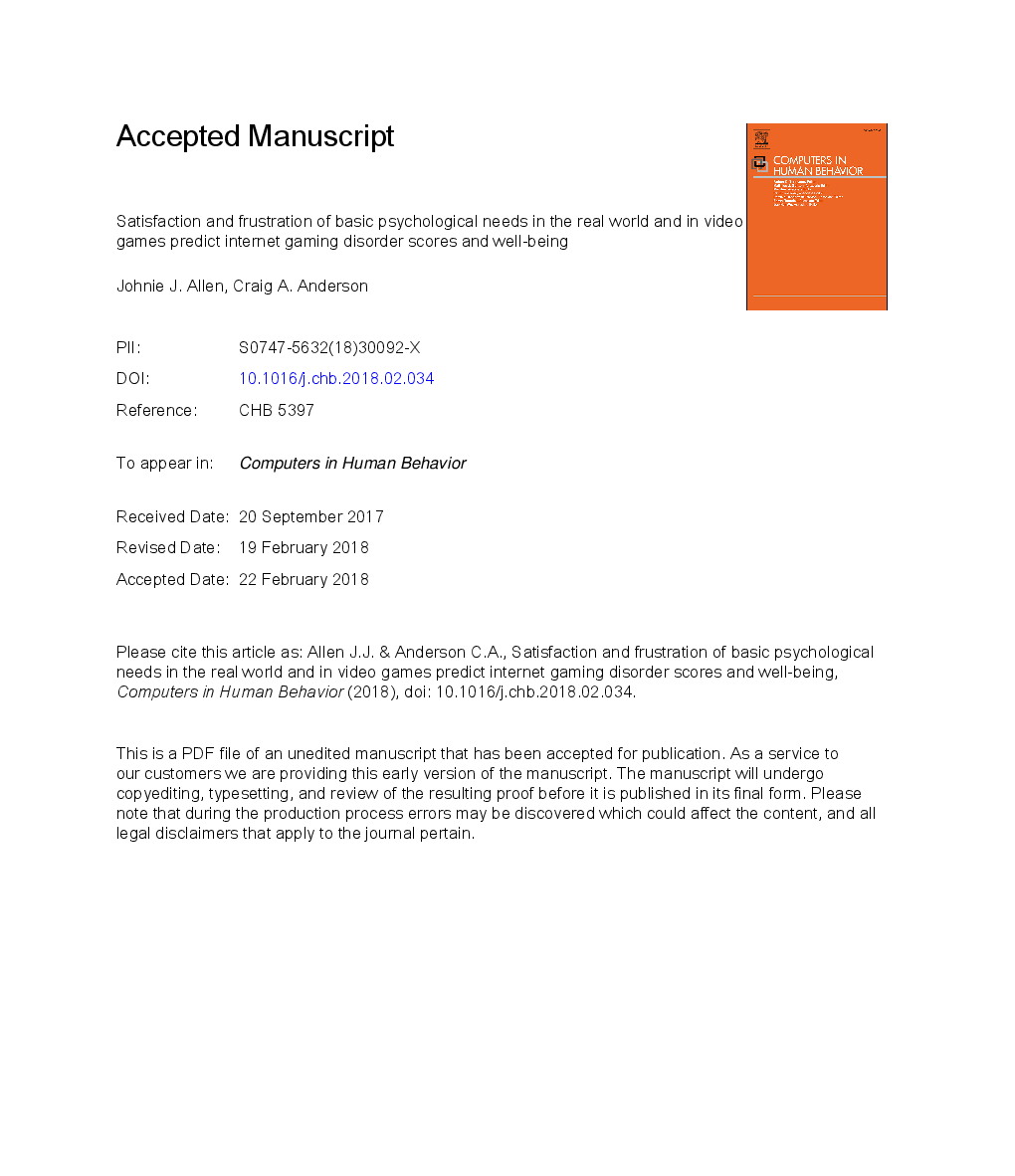ترجمه فارسی عنوان مقاله
رضایت و ناامیدی از نیازهای روانشناختی اولیه در دنیای واقعی و در بازی های ویدئویی پیش بینی نمرات و اختلالات بازی اینترنت و رفاه
عنوان انگلیسی
Satisfaction and frustration of basic psychological needs in the real world and in video games predict internet gaming disorder scores and well-being
| کد مقاله | سال انتشار | تعداد صفحات مقاله انگلیسی |
|---|---|---|
| 125654 | 2018 | 42 صفحه PDF |
منبع

Publisher : Elsevier - Science Direct (الزویر - ساینس دایرکت)
Journal : Computers in Human Behavior, Volume 84, July 2018, Pages 220-229
ترجمه کلمات کلیدی
بازی های ویدئویی، بازی های آسیب شناسی، اختلال بازی در اینترنت، تندرستی، نیاز به رضایت، نیاز به سرخوردگی دارد
کلمات کلیدی انگلیسی
video games; Pathological gaming; Internet gaming disorder; Well-being; Need satisfaction; Need frustration;

